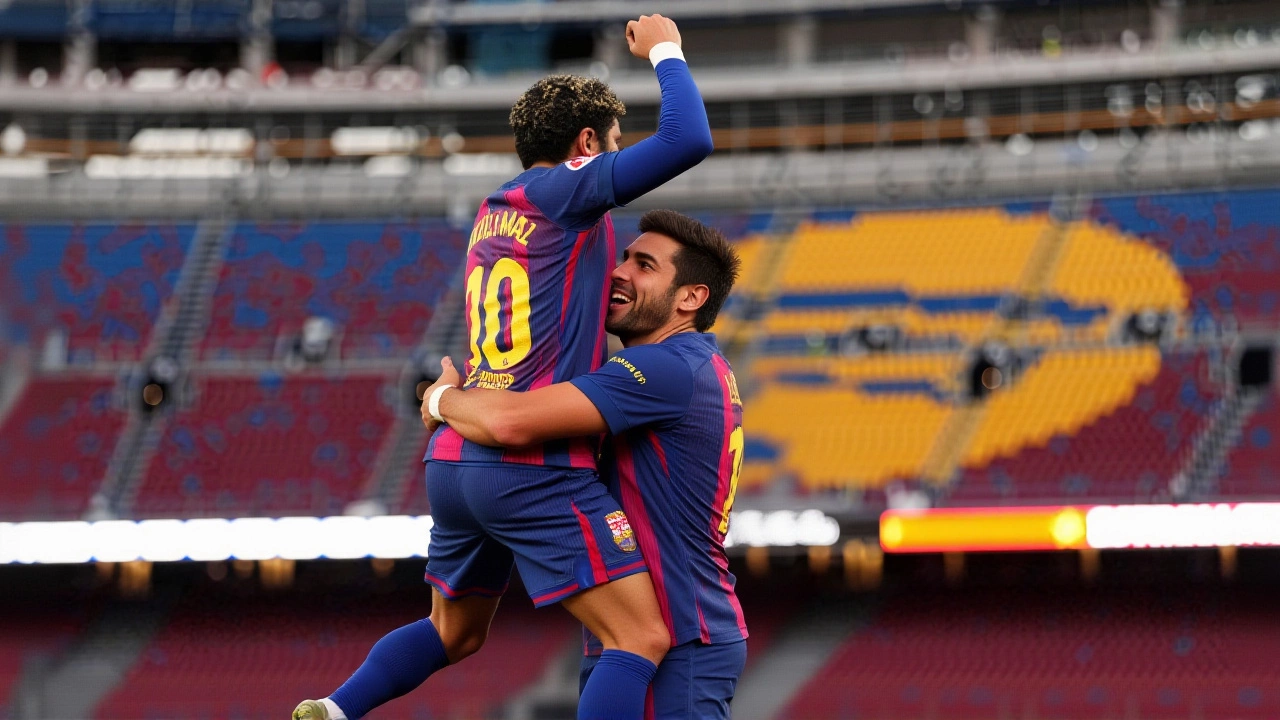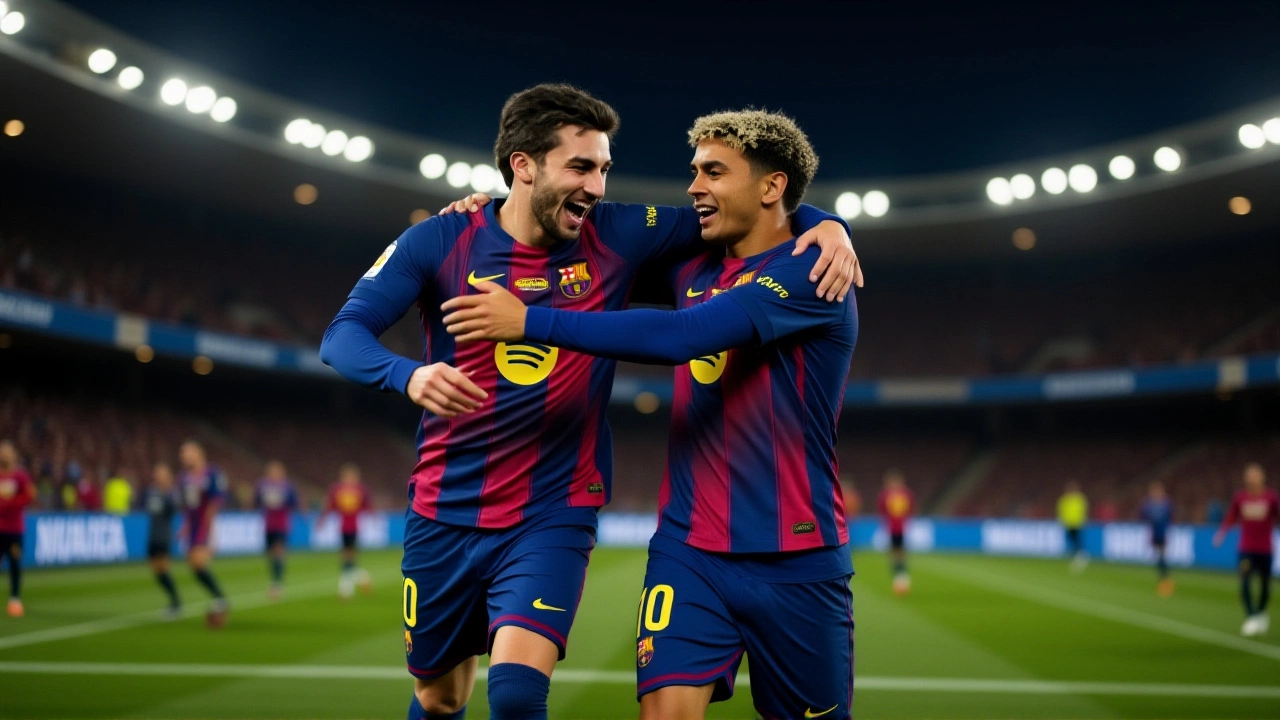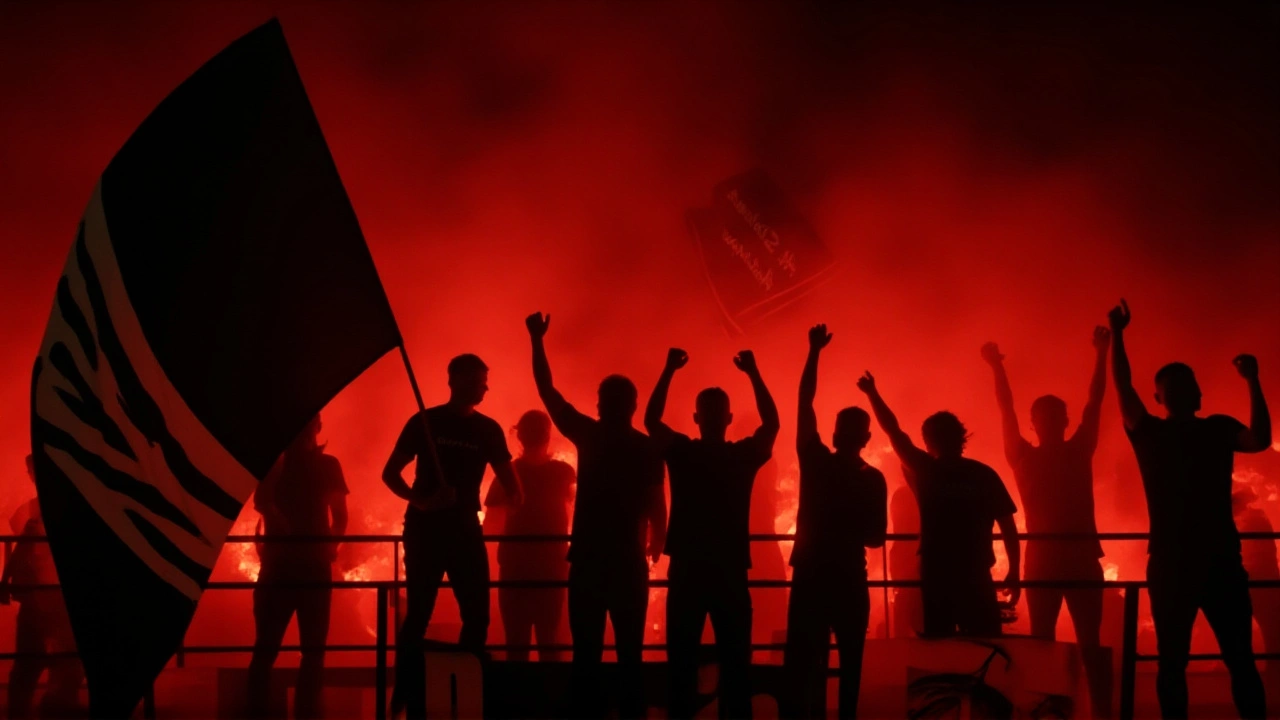When Inter Milan equalized in the 89th minute of their Champions League semifinal second leg, most fans had already turned off their TVs. They’d walked out. Some had even started heading home. Then came the roar — the kind that shakes the stones of San Siro. Francesco Acerbi, 37, center back, lifelong Inter loyalist, scored his first ever European goal — a header off a corner, barely three minutes after Barcelona had taken a 3-2 lead on the night and a 6-5 aggregate advantage. The stadium didn’t just come alive. It exploded. And then, in the 189th minute of the entire two-legged tie, Davide Frattesi buried the winner. Inter Milan didn’t just beat Barcelona. They broke their hearts. And with that, they booked their ticket to the UEFA Champions League Final 2025Fußball Arena München — against Paris Saint-Germain.
The Miracle at San Siro
It was the kind of match that lives in the bones of football fans. Twelve goals across 189 minutes. Five lead changes. A goalkeeper making saves that looked impossible. A defender scoring his first European goal at 37. A midfielder converting a 189th-minute winner — the latest decisive goal in Champions League history. Inter Milan had entered the second leg with a 3-3 draw from Barcelona’s Olympic Stadium at Montjuïc, where Denzel Dumfries had scored twice and Marcus Thuram had opened the scoring with a back-heel so cheeky it made the crowd gasp. But Barcelona responded. Raphinha equalized with a thunderbolt that ricocheted off the post and off Yann Sommer’s back into the net. A goal that shouldn’t have counted — but did.On May 6, 2025, at San Siro, Barcelona came out firing. They were clinical. Efficient. Raphinha struck again in the 86th minute, curling a shot past Sommer to make it 3-2 on the night, 6-5 on aggregate. The fans in the Curva Nord stood. Some clapped. Others quietly left. The match was over — or so they thought.
Then, in the 89th minute, a corner. A flick. A header. Acerbi, the veteran, the forgotten man, the man who’d been told he was too old for this stage, rose above three defenders and buried it. The stadium didn’t just erupt — it inverted. People who’d already reached the parking lot turned around and ran back. Security guards blocked the aisles. Fans screamed through tears. "They weren’t allowed back in," reported CBS Sports’ Francesco Porzio. "But they didn’t care. They stood in the tunnels, screaming until the final whistle."
The Goalkeeper Who Held the Line
You can’t talk about this tie without talking about Yann Sommer. The 36-year-old Swiss international didn’t just make saves. He made statements. In the first leg, he denied Lewandowski with his feet. He palmed away a late Messi free kick — yes, Leo Messi, playing his final Champions League campaign before retiring — with his fingertips. In the second leg, he denied Gavi from point-blank range in the 78th minute, then saved a Raphinha penalty in extra time — the kind of save that makes goalkeepers legends. "He’s not just a keeper," said Inter coach Simone Inzaghi after the match. "He’s the heartbeat."And yet, Sommer didn’t win the game. Frattesi did. The 25-year-old midfielder, who’d been on the bench for most of the season, came on in the 108th minute. He’d barely touched the ball when, in the 189th minute, he received a loose ball just outside the box. No time to think. No time to adjust. He let it fly. It curled. It dipped. It kissed the crossbar and dropped in. The stadium went silent for a split second. Then, chaos. The final whistle blew. Inter Milan had won 4-3 on the night. 7-6 on aggregate. They were going to Munich.

Why This Matters
This wasn’t just a comeback. It was a reckoning. Inter Milan hadn’t reached the Champions League final since 2010. Now, they’re back — for the second time in three years. They’ve beaten Barcelona in a tie that will be studied for decades. The 13 goals? The most in any Champions League semifinal since 2005. The aggregate score? The highest since 1999. And the emotional toll? Unmeasurable.Barcelona, meanwhile, are left with questions. They dominated possession. They had more shots. They scored three goals in Milan. And yet, they lost. Their defense collapsed under pressure. Their captain, Pedri, was injured early in extra time. Their coach, Xavi Hernández, admitted after the match: "We played well. But we didn’t play smart. We didn’t close the game out. That’s on us."

What’s Next: Munich Showdown
UEFA Champions League Final 2025Fußball Arena München will be held on June 1, 2025. Inter Milan will face Paris Saint-Germain, who defeated Arsenal 3-1 on aggregate in the other semifinal. The stage is set for a clash of titans: Inter’s grit versus PSG’s firepower. Mbappé vs. Lautaro Martínez. Neymar’s ghost vs. Frattesi’s moment. A final between two clubs that have never won the Champions League in the 21st century. The last time Inter won it? 2010. The last time PSG won it? Never.For Inter, this is redemption. For PSG, it’s destiny. And for football? It’s a reminder that no lead is safe. No game is over. Not until the final whistle.
Frequently Asked Questions
How did Inter Milan overcome a 6-5 aggregate deficit in the 89th minute?
Inter Milan tied the aggregate score at 6-6 with Francesco Acerbi’s 89th-minute equalizer, forcing extra time. The goal came from a corner kick, where Acerbi outjumped three Barcelona defenders to head the ball past goalkeeper Marc-André ter Stegen. This erased Barcelona’s 6-5 lead and reset the tie to a 3-3 draw on the night, meaning the next goal would win it. Davide Frattesi scored that goal in the 189th minute, securing the 7-6 aggregate victory.
Why was Francesco Acerbi’s goal so historic?
At 37 years old, Acerbi became the oldest player ever to score a Champions League semifinal goal. More remarkably, it was his first goal in European competition in his 18-year professional career. He had never scored in the Champions League, Europa League, or any UEFA club competition before. His goal not only saved Inter’s season but also became the defining moment of his career — a symbol of perseverance and belief.
What impact did Yann Sommer have on the tie?
Sommer made 17 saves across both legs, including six in the second leg alone — three of them in the final 15 minutes of regulation. He denied Raphinha a penalty in extra time and stopped a late Lewandowski header that was heading for the top corner. His performance was so dominant that UEFA named him Man of the Match for the second leg. Without Sommer’s saves, Inter wouldn’t have even reached extra time.
How does this result compare to other legendary Champions League comebacks?
Inter’s 7-6 aggregate win is the highest-scoring semifinal in Champions League history. Only Liverpool’s 4-3 comeback against Barcelona in 2019 had more goals in a single leg (4-0 at Anfield after a 3-0 first-leg deficit). But no team has ever overturned a 6-5 aggregate deficit with just three minutes left. This was the first time in Champions League history a team won on a goal scored in the 189th minute of a two-legged tie.
What does this mean for Inter Milan’s chances in the final against PSG?
Inter’s resilience and defensive discipline give them a real shot. PSG’s attack is lethal, but their defense has been shaky in big games — they conceded 10 goals in their last five knockout matches. Inter’s midfield, led by Frattesi and Barella, can control tempo. If Sommer replicates his performance, and Lautaro Martínez finds his scoring touch, Inter could win their first Champions League in 15 years.
Is this Inter Milan’s best Champions League performance ever?
In terms of drama and emotional impact, yes. Their 2010 run was more clinical, but this campaign has been more unpredictable and heart-stopping. The 13 goals in the semifinal tie surpass even their 1965 campaign. And unlike 2010, when they had a star-studded squad, this Inter team is built on grit, youth, and veteran leadership — making their journey even more remarkable.
